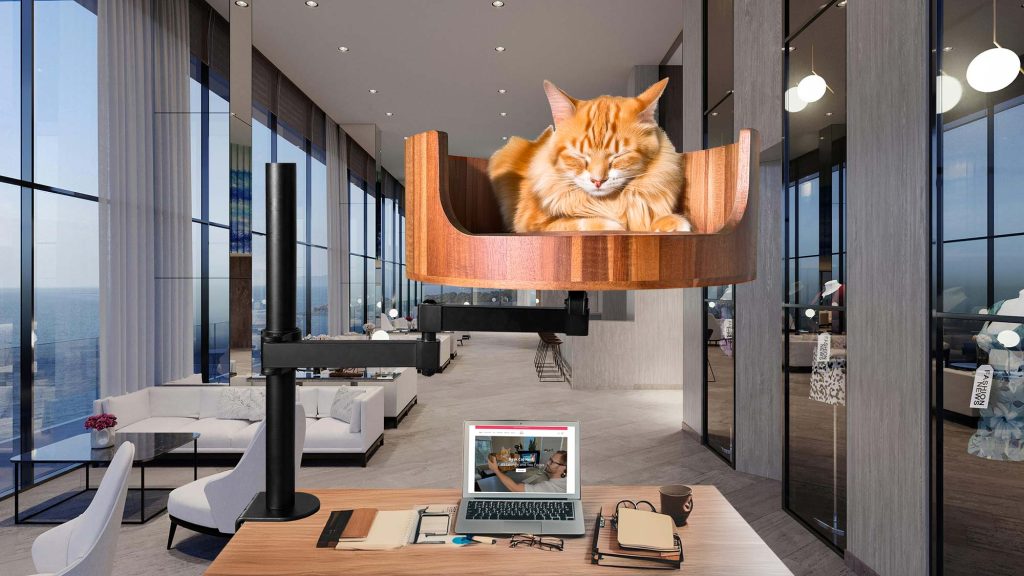Cats are beloved pets that bring joy and companionship to millions of people around the world. As our feline friends age, it’s important for cat owners to be aware of the signs of aging and how to best care for their senior cats. In this article, we will explore the common signs of aging in cats and provide tips on how to recognize and manage these changes.
As cats grow older, they experience changes in their body and behavior that can indicate they are entering their senior years. Some common signs of aging in cats include changes in appetite, weight loss, decreased activity levels, and increased sleeping. It’s important for cat owners to monitor their feline companions closely and consult with a veterinarian if they notice any concerning changes. Additionally, we will discuss how to provide proper care for senior cats, including adjusting their diet, providing comfortable resting spots, and incorporating regular exercise into their routine. By being aware of the signs of aging in cats and taking proactive steps to care for them, cat owners can help ensure their feline friends live long, healthy, and happy lives.
1. Keep an eye out for common signs of aging in cats, such as changes in behavior, appetite, and activity levels.
2. Regular veterinary check-ups are crucial to catch any age-related health issues early on.
3. Providing a comfortable and quiet space for your aging cat to rest can greatly improve their quality of life.
4. Adjusting their diet to meet their changing nutritional needs is essential for their overall well-being.
5. Show your senior cat love and patience as they navigate the challenges of aging, and enjoy the special bond you share with them.
Changes in Physical Appearance
As cats age, their physical appearance may start to change. One common sign of aging in cats is the development of gray or white fur around their face and body. Additionally, older cats may start to lose muscle mass and appear thinner or more frail. Keep an eye out for any lumps, bumps, or changes in skin texture as these can be indicators of health issues in senior cats. Dental problems, such as gum disease, can also become more prevalent as cats age, so regular dental check-ups are important.
Behavioral Changes
As your cat ages, you may notice changes in their behavior. They may become less active and spend more time sleeping or lounging around. Older cats may also become more vocal, especially when in discomfort or pain. Some cats may become more needy or clingy as they age, seeking more attention and affection from their owners. Changes in litter box habits, such as urinating outside the box or straining to urinate, can also be signs of aging-related health issues.
Health Issues and Medical Care
Senior cats are more prone to certain health issues, such as arthritis, kidney disease, hyperthyroidism, and diabetes. Regular veterinary check-ups are important for early detection and management of these conditions. Your vet may recommend changes to your cat’s diet, exercise routine, or medications to help manage aging-related health issues. It’s important to keep an eye on your cat’s weight, appetite, and overall well-being to catch any health problems early.
Environmental Adaptations
As your cat ages, you may need to make adjustments to their living environment to accommodate their changing needs. Consider providing soft bedding or a heated cat bed to help keep your senior cat comfortable. You may also need to make changes to their feeding routine, such as feeding smaller, more frequent meals or switching to a senior-specific diet. Keep an eye on your cat’s mobility and consider adding ramps or steps to help them navigate their space more easily.
Frequently Asked Questions
What are the signs of aging in cats?
Some common signs of aging in cats include decreased activity, changes in appetite, weight loss, dental issues, vision problems, and arthritis.
How can the Desk Cat Nest help with cat aging signs?
The Desk Cat Nest provides a cozy and comfortable resting place for your aging cat, allowing them to relax and sleep comfortably. The elevated design also helps with mobility issues by providing easy access for your cat to climb in and out.
Is the Desk Cat Nest easy to clean?
Yes, the Desk Cat Nest is easy to clean. Simply remove the cushion and wipe down the surface with a damp cloth. The cushion cover is also machine washable for added convenience.
Can the Desk Cat Nest accommodate larger cats?
The Desk Cat Nest is designed to accommodate cats of various sizes and weights. The sturdy construction can support up to 20 pounds, so it should be suitable for most cats, including larger breeds.
Is the Desk Cat Nest easy to assemble?
Yes, the Desk Cat Nest is easy to assemble and comes with clear instructions. No tools are required for assembly, making it quick and hassle-free to set up for your furry friend.
In conclusion, choosing a Desk Cat Bed for your aging feline companion is a valuable investment in their health and well-being. Not only does it provide a comfortable and safe space for them to rest and relax, but it also helps to alleviate common aging signs such as joint pain, stiffness, and arthritis. The elevated design of the Desk Cat Bed promotes better circulation and reduces strain on their joints, ultimately improving their overall comfort and quality of life. With its plush cushioning and sturdy construction, this product offers the perfect combination of support and comfort for your beloved senior cat.


